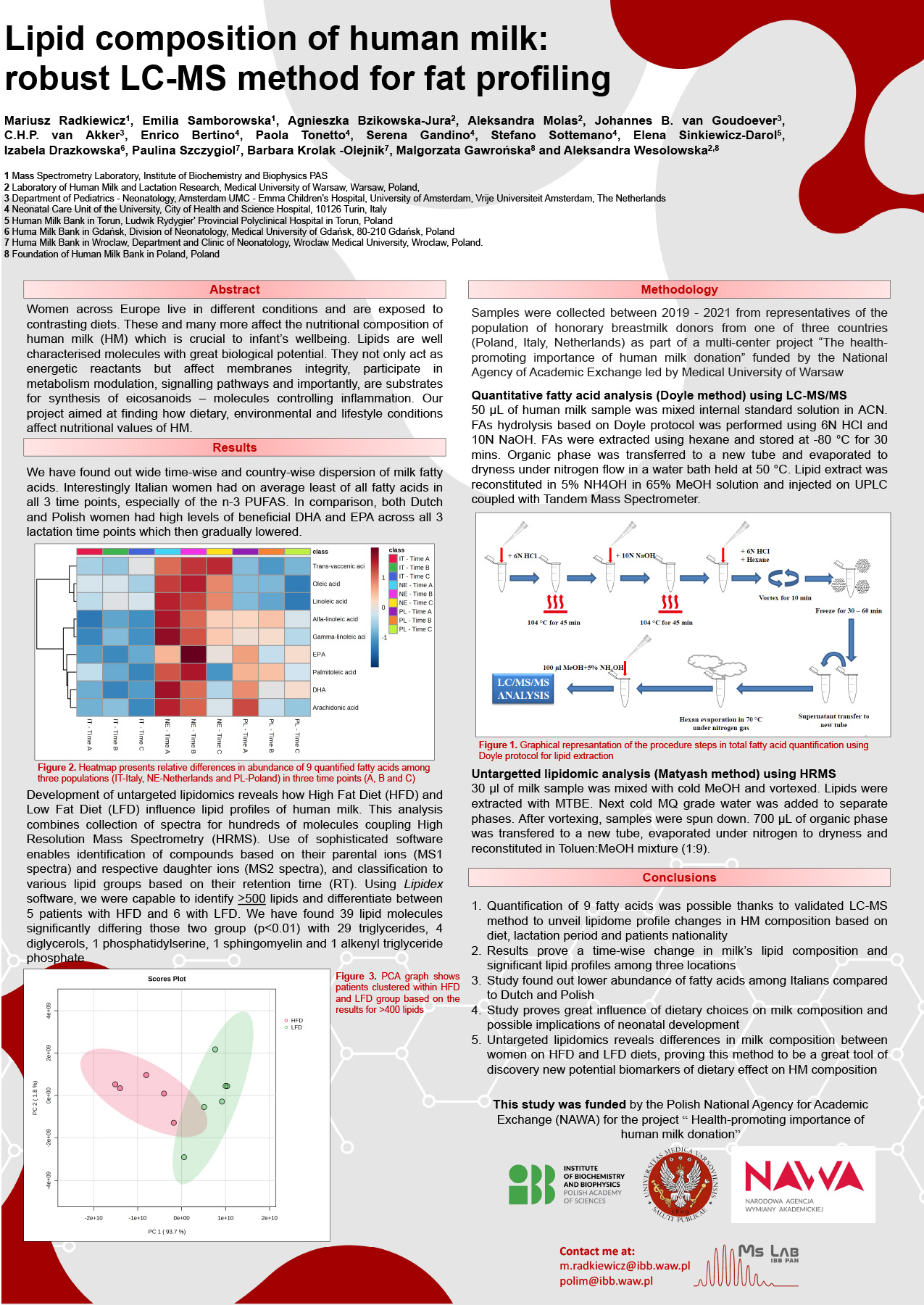Introduction: Women across Europe live in different conditions and are exposed to contrasting diets. These and many more affect the nutritional composition of human milk (HM) which is crucial to infant’s wellbeing. Lipids are well characterised molecules with great biological potential. They not only act as energetic reactants but affect membranes integrity, participate in metabolism modulation, signalling pathways and importantly, are substrates for synthesis of eicosanoids – molecules controlling inflammation. Our project aimed at finding how dietary, environmental and lifestyle conditions affect nutritional values of HM.
Methodology: Quantification of 9 fatty acids total concentration (palmitolenic, oleic, linolenic, alfa-linolenic, gamma-linolenic, docosahexaenoic, eicosapentaenoic, trans-vaccenic and arachidonic acids) was performed using LC-MS/MS method. 189 samples were divided based on their location (Poland, Italy, Netherland) and lactation period. Samples preparation procedure used Doyle lipid extraction to collect the total number of fatty acids. Untargeted lipidomics analysis using HRMS (High Resolution Mass Spectrometry) was performed to visualise differences in lipidome profile for pre-selected samples.
Results: Seven fatty acids (oleic, linolenic, alfa-linoleic, gamma-linolenic, docosahexaenoic, eicosapentaenoic and trans-vaccenic acids) were found to be significantly different (p<0.05). Italian women were found to have the lowest mean concentration values for all nine FAs, but most importantly, for two beneficial fatty acids – DHA and EPA (48.76 and 13.28 µg/mL, respectively) compared to Dutch (103.97 and 28.63 ng/mL) and Polish (86.64 and 23.01 ng/mL). Lower levels of these two essential fatty acids may contribute to gut dysfunction, higher chances of diabetes development or affect brain growth and functional development. Further global analysis of representative samples proved differences among main classes such as phospholipids, triglycerides or ceramides.
This study was funded by the Polish National Agency for Academic Exchange (NAWA) for the project “ Health-promoting importance of human milk donation”
